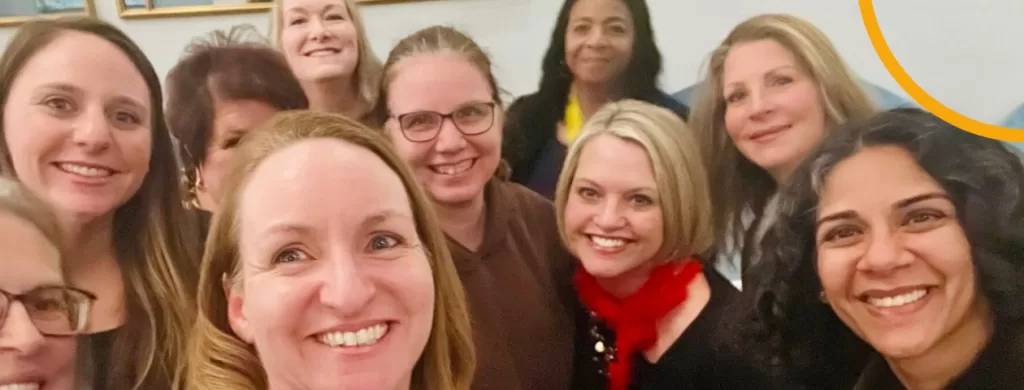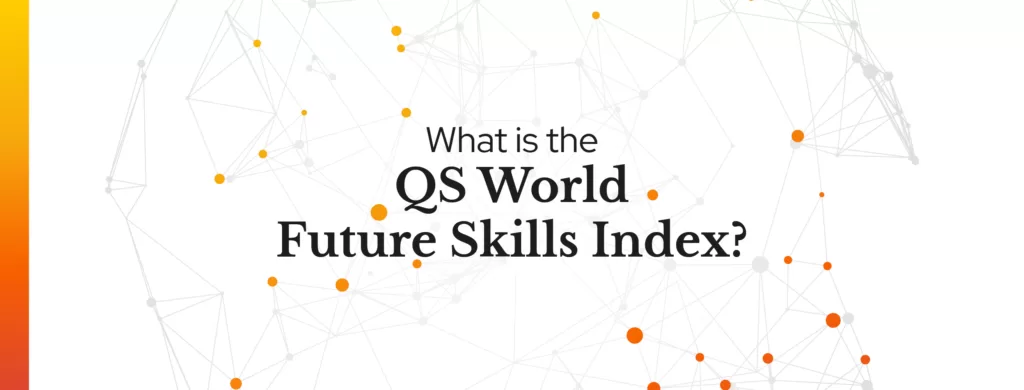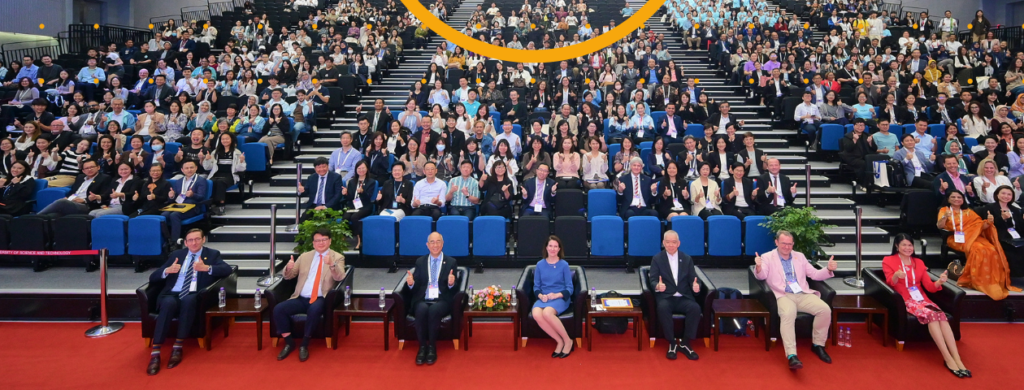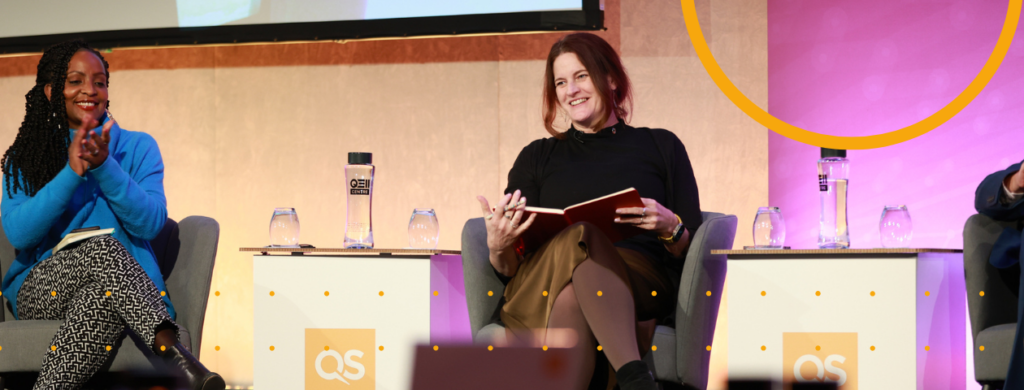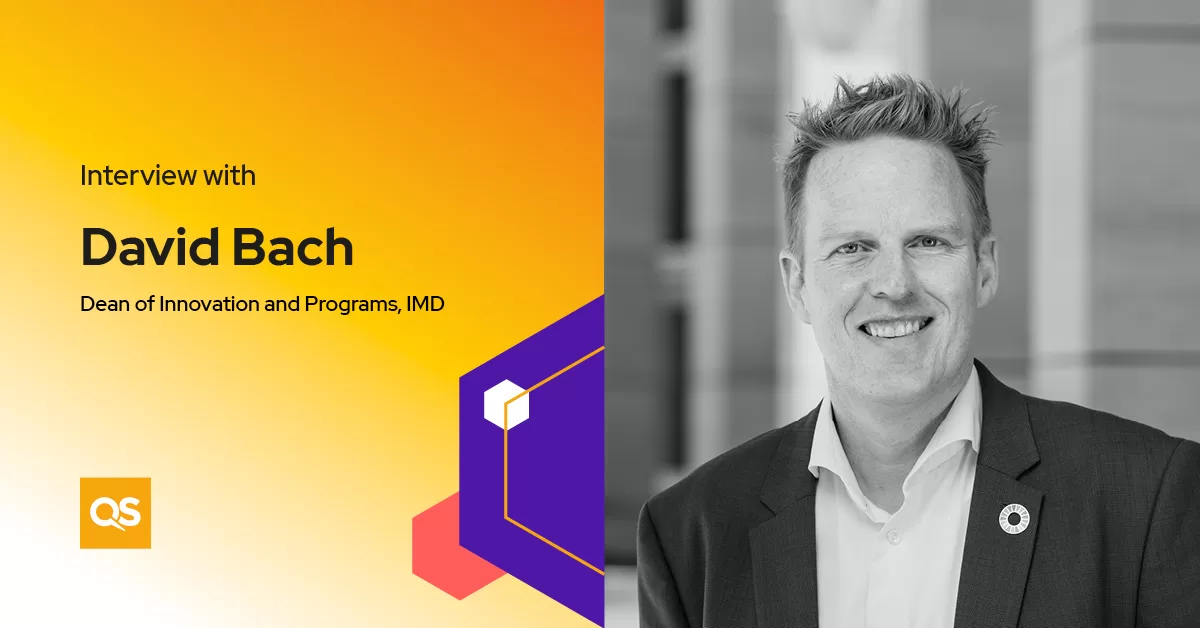
Individuals trying to get ahead in their careers need to continuously develop their skills and embark on lifelong learning.
The QS Global Employer Survey 2023 revealed that one of the biggest soft skills gaps between employers’ perception of a skillset and their satisfaction with it is in ‘Problem solving’ – ranked 97.3% important but only 85.2% satisfied.
Business schools are well-placed to offer upskilling opportunities for the motivated worker. But are they falling behind as microcredentials and short courses become more popular among Gen Z?
Professor David Bach has been Dean of Innovation and Programs at IMD Business School since 2020 after eight years at Yale School of Management, and a further eight years at IE Business School. At IMD, he says: “My job is to make sure we continue to innovate our programmes both in terms of content and pedagogy to make sure they meet the needs of our learners and corporate clients.” It is an interesting position to hold at a standalone business school, with AACSB reporting that university-based business schools have been slow to adapt to the changing needs of the job market – decreasing the opportunity for longer-term study.
We spoke with David and reflected on the rapid pace of change in the modern workforce, and IMD’s unique position as a top business school that was created with a mandate to focus on lifelong learning.
Perception and reality
“At a lot of business schools, even among the top ones, lifelong learning is viewed as a way of shoring up the institution’s finances,” David says. “Alternatively, it’s seen as a service to be provided to alumni. I think both views are far too limited.
“Nothing says that the only way for us to have impact is to focus all of our attention on young people in their 20s starting out their careers. That’s certainly one way. But we, as an industry, can have tremendous impact on business and society by engaging with practising managers, not just via EMBAs or executive master’s but also through non-degree programmes.
“In fact, there are way more practising managers than there are full-time students enrolled in business programmes. I hope that more schools will make lifelong learning a central pillar of their activities, and that they do it with a focus on impact rather than on extra revenue.”
“We are embracing the idea of stackability and customisation – giving learners an opportunity to design their own unique learning journey and time it according to their needs.”
Adapting for the future
“What we are doing now is combining some of our open enrolment programmes into certificates, diplomas and ultimately, master’s programmes,” David says. “We have a large portfolio of open enrolment programmes with about 70 different offerings in areas such as leadership, digital business, innovation, sustainability, family business, corporate governance and general management. Some are as short as two to three days while others last for four to six weeks.
“We are embracing the idea of stackability and customisation – giving learners an opportunity to design their own unique learning journey and time it according to their needs – by leveraging our broad portfolio. I am convinced that in the future, the distinction between non-degree executive education and degree programmes will get increasingly blurred.”
Barriers to change
Amidst a confluence of challenges facing businesses – David cites integrating Gen Z into the workforce, transitioning to a more inclusive and sustainable business model, geopolitical issues – David adds that all of these changes require “talent development” in order to build resilience.
“CEOs have realised that the best strategies will fail if they do not simultaneously invest in the development of their people. So, the climate is very good, the demand is big, and I don’t see it subsiding.
“But unlike the world of degree programmes, business schools really don’t have a monopoly. There are so many organisations that offer lifelong learning. That’s why the key to taking advantage of the demand for lifelong learning is the proximity to business, being close to managerial practice. And that’s not just a requirement for the dean or a couple of school representatives. It’s got to be true for the faculty at large.
“If faculty aren’t in constant touch with business, with the problems leaders face, they can’t effectively respond with compelling life-long learning offerings. As academic institutions, our knowledge generation, our appreciation of pedagogy, our focus on rigor and impact, all of this gives us a potential leg up over for-profit providers, but only if we’re close to practice. That’s where I would start.”
“We have to get our act together, and fast!”
Will the rise in generative AI have an impact on lifelong opportunities?
“Absolutely!” David says. The potential of generative AI is exciting for the business school: “Our first tests, experiments and pilots suggest that generative AI will enable us to make learning interactive and personalised at scale. It can turn a piece of content – say a video by a professor – into the anchor of a personalisable, highly interactive learning experience. That’s incredibly powerful.
However, despite the endless possibilities for generative AI in executive education, it is clear that business schools will not be the only ones to benefit.
“In fact, generative AI will make it easier for new competitors to serve the needs of lifelong learners. We have to get our act together, and fast!”
